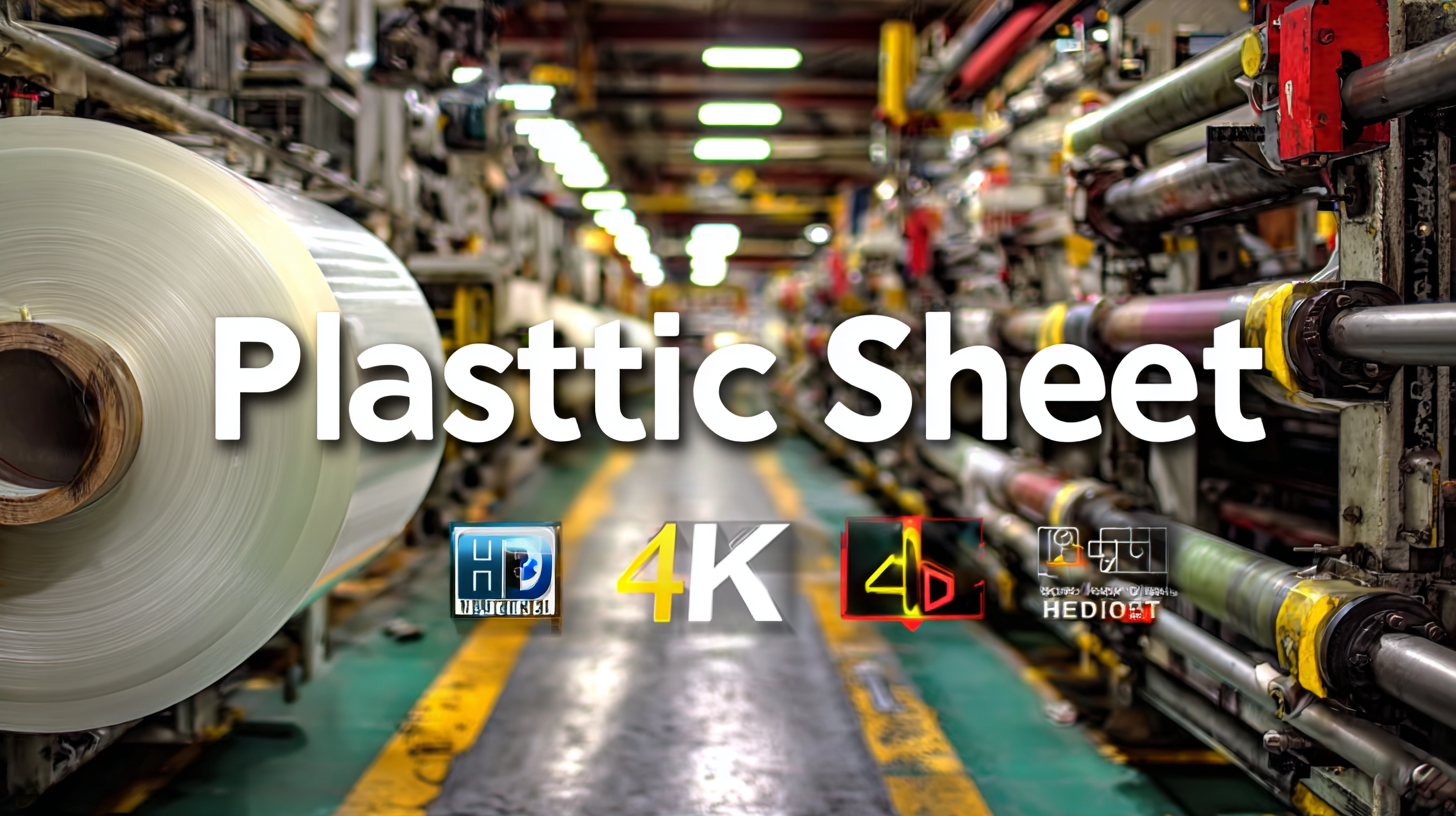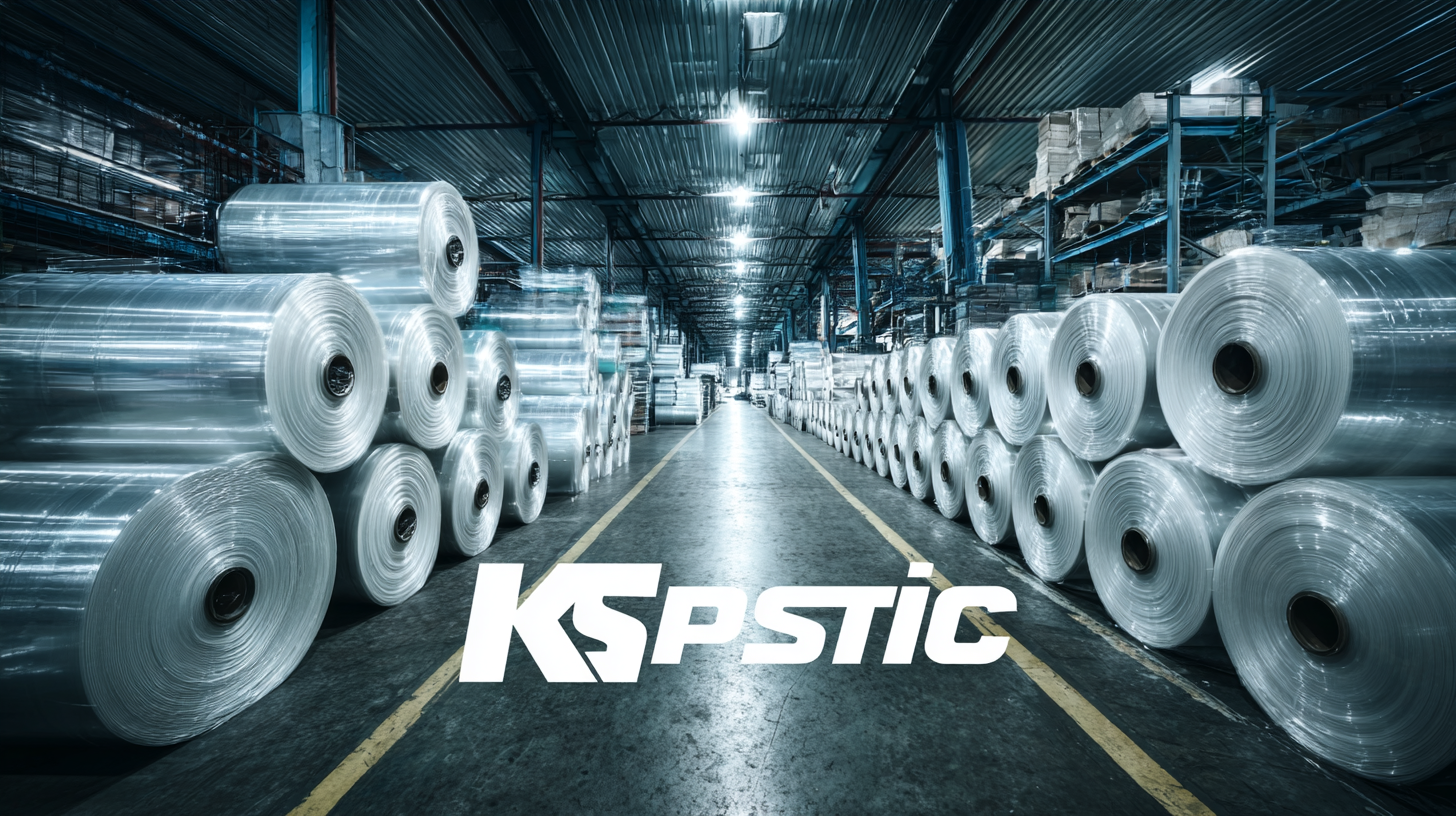


In today’s competitive market, finding a reliable supplier for high-quality plastic sheets is crucial for businesses looking to optimize their production processes and maintain superior product standards. As industries increasingly turn to plastic sheets for their versatility and durability, the demand for top-notch materials continues to rise. This blog aims to guide you through the essential strategies for identifying and selecting the best suppliers in the global market.

We will explore key factors to consider, such as material specifications, manufacturing capabilities, and export compliance, while also discussing best practices to ensure a successful partnership. By the end of this article, you will be equipped with the knowledge needed to source high-quality plastic sheets that meet your business requirements and drive growth in an ever-evolving industry landscape.
In the competitive landscape of plastic sheet manufacturing, producing high-quality products for global export comes with its unique set of challenges. One of the primary hurdles is maintaining consistency across different production batches. Fluctuations in raw material quality, variations in manufacturing processes, and differences in environmental conditions can all affect the final product's integrity. As a leading global manufacturer, it is crucial to implement rigorous quality control measures and standardized processes to ensure that every sheet meets international standards.

Another significant challenge lies in adapting to diverse market demands. Different regions have varying requirements based on regulatory standards, application needs, and consumer preferences. This necessitates continuous research and development to innovate and tailor products for specific markets. Furthermore, the logistics of exporting plastic sheets can pose difficulties, from ensuring that products are transported safely without damage to navigating international shipping regulations. Addressing these challenges requires not only advanced manufacturing techniques but also strong communication and collaboration with supply chain partners worldwide.
Supply chain disruptions have profoundly impacted the production of plastic sheets, a pivotal component in various industries such as construction, packaging, and automotive. According to a report by the World Economic Forum, global supply chain issues resulted in delays for over over 40% of manufacturers in the plastic sector, leading to extended lead times and reduced availability of critical materials. This situation has compelled manufacturers to reassess their sourcing strategies and supply chain dependencies, pushing them towards more localized production to mitigate risks.

Navigating the intricate landscape of regulatory compliance in the plastic sheet industry is paramount for leading manufacturers seeking to thrive in a global market. As sustainability becomes a critical focus, companies must adhere to various national and international regulations concerning material sourcing, production processes, and end-of-life disposal of plastic products. According to a report from the Plastics Industry Association, over 60% of plastic manufacturers cite regulatory compliance as a significant challenge that impacts their operational efficiency and innovation.
For instance, the European Union's Plastics Strategy, which aims to make all plastic packaging recyclable or reusable by 2030, has far-reaching implications for manufacturers exporting to Europe. Companies must not only align their products with these regulations but also invest in certifications and documentation to prove compliance. Additionally, the recent growth in global plastic waste regulations is driving manufacturers to adopt more sustainable practices. A study published by the International Energy Agency suggests that around 25% of plastic production materials must shift towards alternative sources to meet these stringent regulations. This shift is essential for manufacturers to maintain their market position and meet customer expectations in an increasingly environmentally conscious world.
Common defects in plastic sheets can significantly impact their functionality and marketability. According to a 2022 report by Plastics News, nearly 15% of plastic sheets produced globally exhibit defects such as warping, bubbling, and surface imperfections. Warping often occurs due to improper cooling processes during manufacturing, leading to dimensional inaccuracies. To mitigate this, manufacturers should ensure uniform cooling and use temperature-controlled environments.
Another prevalent issue is bubbling, which can arise from trapped gas during the extrusion process. This not only affects the aesthetic quality but can also compromise the structural integrity of plastic sheets. To address bubbling, implementing proper venting systems in production is crucial. Furthermore, conducting routine quality control checks can help identify and rectify these defects early, saving resources in the long run.
**Tips:** Always monitor the temperature and humidity levels in the production facility to minimize defect occurrence. Additionally, investing in advanced extrusion equipment can enhance the overall quality of the output, ensuring a consistent product for export. Regular training for staff on best practices can further reduce the incidence of these defects.
In today's competitive market, leading manufacturers of plastic sheets are increasingly focusing on sustainability as a cornerstone of their operations. Implementing eco-friendly practices not only enhances brand reputation but also meets the rising consumer demand for environmentally-conscious products. One effective strategy is optimizing the production process by utilizing recycling technologies. This minimizes waste and ensures that raw materials are sourced responsibly.
Another approach is to invest in the development of biodegradable plastics. By incorporating natural additives into the manufacturing process, companies can create products that break down more easily in the environment. This transition not only reduces the ecological footprint but also opens up new avenues for marketing sustainable offerings.
Tip: Consider conducting a life cycle assessment (LCA) to identify areas where sustainability measures can be implemented effectively.
Tip: Engage with suppliers who prioritize sustainable practices and materials, fostering a supply chain that aligns with eco-friendly goals.
These steps are crucial for plastic sheet manufacturers aiming to lead in both quality and sustainability on a global scale.